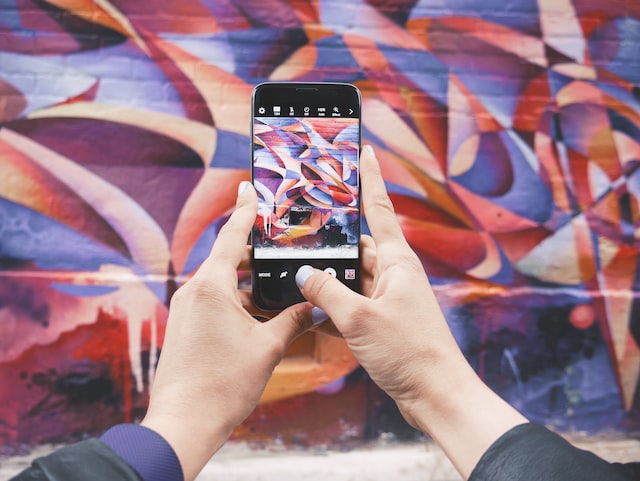
As an influencer, the internet can be your best friend or worst enemy. With great power comes great responsibility (Voltaire or Spiderman’s Uncle Ben?), and staying safe online is an integral part of being a successful influencer.
Protecting your digital identity is essential to managing your online presence, but it can be challenging to know where to start. From being aware of what you post and who you connect with to using strong passwords, there are a variety of tips and tricks you can use to protect your digital identity and ensure you stay safe online. Keep reading to learn the best advice for influencers to protect their digital identity and stay safe online!
Have Strong Passwords
The first and most important tip for protecting your digital identity is to have strong passwords. A strong password should be at least 8 characters long and contain a combination of upper and lowercase letters, numbers, and symbols. Try not to use the same password for multiple accounts and change them every few months. Also, ensure not to share your passwords with anyone and avoid using easily guessed words like your name or birthdate.
You can also use a password manager to help you create and store strong passwords for different accounts. Password managers are secure applications that store all your passwords in an encrypted format so you don’t have to remember them all. They also generate random passwords for new accounts, making it even harder for your digital identity to be compromised.
Finally, avoid writing down your passwords or saving them in an unsecured file. Doing so can leave your digital identity vulnerable to malicious actors or hackers.
Enable Two-Factor Authentication
Two-factor authentication (2FA) is one of the best ways to protect your digital identity. 2FA adds an extra layer of security by requiring you to enter a code sent to your phone or email and enter your password.
This means that even if someone could guess your password, they wouldn’t be able to access your account without the code.
Most websites and applications now offer 2FA, so enable it for your accounts. This is especially important for accounts with sensitive information, such as banking accounts or social media accounts. Remember o double check the emails/texts when they come through to ensure you aren’t falling for a phishing scam; for example, if you are asked to verify your identity and you haven’t asked for the 2FA to be sent, don’t click the link, instead go directly to your account via your usual methods and confirm nothing untoward is happening that way.
Use a VPN
A virtual private network (VPN) is a great way to protect your digital identity. VPNs encrypt your data and hide your IP address, making it much harder for cybercriminals or hackers to track or steal your information. This is especially important if you are connecting to public Wi-Fi networks, as they are often unsecured and can leave your data vulnerable to attack.
Additionally, VPNs allow you to access content that may not be available in your region. This can be especially useful if you travel and want to access content from your home country.
When choosing a VPN, be sure to pick one that offers strong encryption and good security features. You should also look for a fast, reliable VPN with a good reputation.
Avoid Clicking Links in Emails or Messages on Social Media
Cybercriminals often use malicious links to spread malware or steal your information. Another important tip for protecting your digital identity is to avoid clicking links in emails or messages on social media. If you receive an email or message with an unfamiliar link, be sure to verify it before clicking on it.
Additionally, be wary of emails or messages that try to get you to provide personal information such as your name, address, or credit card number. These are often phishing scams and should be avoided.
Common ones include being asked to message a different account with your details to join their influencer network for free items. Typically these are scams and could potentially result in someone attempting to hack your account or worse

Block Risky Accounts, Apps or Websites
You should also block any risky accounts, apps, or websites that could potentially harm your digital identity. This includes accounts that post malicious content, apps that ask for too much personal information, or websites that are known for hosting malicious software.
If you come across a website that looks suspicious or feel uncomfortable about it, leave it immediately and report it to the appropriate authorities.
Look for the padlock in the search bar to indicate the level of safety of that particular website. This is especially important if you are using a public Wi-Fi network, as these are more likely to be used by malicious actors. If you use a security provider, they will usually flag risky accounts and websites for you; alternatively, you can follow this online instruction to help you to do this.
Turn Off Real Time Location Tracking
Real-time location tracking is a feature that allows websites and apps to track your location in real time. This can be useful if you are looking for nearby restaurants or stores, but it also leaves your digital identity vulnerable to tracking and surveillance.
To protect your digital identity, turn off real-time location tracking on your devices. Influencers can often be at an increased risk of being followed or stalked due to online activity. And, while in some cases, you need to be able to share your location; for example, when promoting venues or places, try to have this on a delayed timestamp to give you added peace of mind where possible or tag yourself in a location once you have left.
Be Careful with Information You Choose to Share
It is also essential to be careful with the type of information you share online. Anything that allows people to identify you and where you can put you at risk. Be sure not to post sensitive information such as bank account numbers or passwords.
Additionally, be aware of what you post on social media and make sure not to post anything that could be used against you. This includes private details such as your home address, workplace, children’s school, where you receive medical care and more.

Protecting your digital identity is an essential part of being a successful influencer. From using strong passwords to turning off real-time location tracking, there are a variety of tips and tricks you can use to protect your digital identity and ensure you stay safe online. By following the tips above, you can ensure that your digital identity is secure and you stay safe online.



